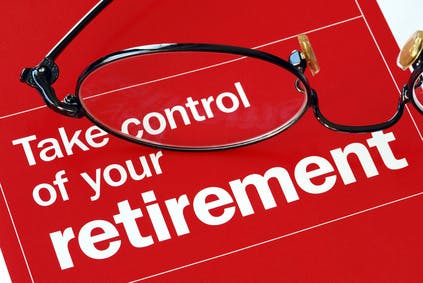With so many Baby Boomers facing retirement — and with so many feeling they need to keep working because they can’t afford to do it — those fears are now spreading throughout the workforce.
Here’s an example of that: The latest installment of the Towers Watson Retirement Attitudes Survey found “that an increasing number of U.S. workers say they are willing to trade some of their pay for more secure and generous retirement and health care benefits” and that “nearly half of the workers polled are worried about reductions in their retirement benefits over the next two years.”
Here are some of the key survey findings:
- Over the last three years, retirement security has acquired a higher value for nearly nine in 10 older workers.
- More than four in five respondents say their employer has curbed their pay and/or benefits over the last three years, and nearly half are worried about future reductions to their retirement benefits. An even greater number fear higher health costs are ahead.
- Health care costs top the list of workers’ retirement security worries.
- More than half (55 percent) of respondents say they are willing to pay a higher amount from each paycheck to ensure they have a guaranteed retirement. That compares with 46 percent two years ago.
- Additionally, 50 percent of respondents say they would trade a portion of their pay to ensure they have access to health care benefits if they retire before they are eligible for Medicare benefits, versus 40 percent in 2009.
- More than half (53 percent) of those polled said they would be willing to trade a portion of their pay in return for more generous benefits.
Workers are focusing on retirement readiness
“Since the economic crisis, employees have been paying much closer attention to their retirement readiness, and many are willing to look at new ways to balance their mix of pay and benefits,” said Kevin Wagner, a senior retirement consultant at Towers Watson, in a press release about the survey’s findings.
He added: “This may reflect their firsthand experience with financial market volatility, continuing worries about the economy and fears of future cutbacks to benefits. Workers, especially older employees, may also be reeling from declines in their retirement account balances as well as home values due to the financial crisis. As a result, retirement security has become significantly more important to them.”
One of the most interesting findings is that the fears about retirement readiness are not limited to just Baby Boomers or those workers closing in on retirement. In fact, the Towers Watson survey found that “some of the most dramatic changes in attitudes toward risk, rewards and security trade-offs have been among younger employees and those with a defined benefit (DB) plan. Among DB plan participants younger than 40, the number willing to pay for a guaranteed retirement benefit jumped by nearly 70 percent, from 39 percent in 2009 to 66 percent in 2011.”
And, that’s not all of it.
Fear of more cuts fueling attitudes
The survey also found that many employees “fear that additional cuts in their retirement and health benefits are on the horizon. More than four in 10 (44 percent) are worried about reductions to their retirement benefits over the next two years, with younger DB plan participants particularly concerned (63 percent). Employees are even more concerned about having to shoulder more financial responsibility for their health care costs. Nearly three in four employees (73 percent) are concerned about higher out-of-pocket health costs and co-pays over the next two years, compared with two-thirds (67 percent) in 2007.”
Bill Daniels, a senior retirement consultant at Towers Watson, didn’t mince words in his analysis of the survey data.
“The fact is that predictable health costs and retirement guarantees have become significantly more important over the last few years to employees, no matter what their age,” he said. “Employees are clearly becoming more interested in adjusting the balance between financial risk and opportunity toward security, especially when it comes to their retirement benefits. For employers, addressing employees’ retirement and health care benefit preferences could very well help to lessen their financial worries and increase engagement levels.”
Despite the slowly developing economic recovery, employees everywhere, and in all age groups continue to be concerned about not just their jobs, pay, and continued employment, but more and more, by how ready they’ll be for retirement, too. This may be more pronounced in older workers, but it has clearly trickled down to younger employees as well. That’s a finding that should give all employers pause.
The Towers Watson Retirement Attitudes Survey was conducted in June and July of 2011, and includes responses from 9,218 full-time U.S. employees at non-government organizations with 1,000 or more employees.
